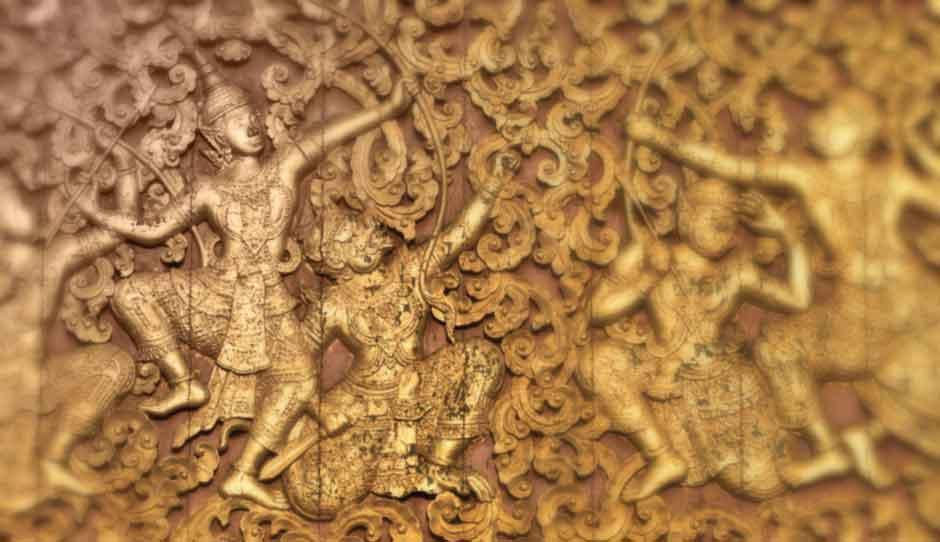Karmic Verses: How to Bridge Ancient Wisdom with Modern Day Business
- BY Ira Swasti
 In Strategy
In Strategy 10400
10400 0
0


Even though Ashwin Sanghi’s books are historical thrillers based on Indian epics, his entrepreneurial experience has helped him connect the dots between their ancient wisdom and modern day business practices. Sanghi believes that the notion of karma—that our past life’s actions have a bearing on our present life and our present actions impact our next life—makes Indian managers more resilient to setbacks in business. There is a feeling of this too shall pass that overtakes to deal with losses better. Conversely, this same notion could make them complacent and resigned to their “fate” or “destiny”. Here, Sanghi highlights three other spiritual beliefs that could shape the way entrepreneurs approach business in India.
VERSE 1
Balance wisdom and wealth
The concept of a balance between Lakshmi and Saraswati—or money and wisdom—continues to be a cornerstone of Indian management philosophy. That same balance is apparent even in the Mahabharata—when Krishna asks Arjuna and Duryodhana to choose between him and his army before the war—in effect, a choice between strategic intelligence and material possessions. Essentially, he was offering his wisdom as a strategic thinker and a war strategist, or his army. This is probably one of the most beautiful aspects of Indian management where knowledge and wealth creation are given equal importance. This is partly why we have a flourishing economy in times of a capital crunch right now. Unlike the west, this is not a conscious choice for us. The buzz now is a new concept of building the knowledge economy along with focusing on private equity and capital. But India has always known and practised this. I don’t think the IT sector boom would have happened if we hadn’t put a premium on knowledge. Nor would have India's knowledge economy taken off as it did. So we don't need to relearn that concept. We've always placed an equal premium on both.
VERSE 2
Look at the big picture

There was a lot of scepticism when Google adopted its informal corporate motto— don’t be evil. People said it was foolish. I don’t know whether Google is living up to its motto or not, but I have to say that there is a very philosophical and karmic context to it ; one that other corporates also must embrace. The notion of karma says there is a system of checks and balances, that there is life after death, and that every action has an opposite and equal reaction. If you believe in karma, t essentially means that there is a massive personal computer somewhere that is ensuring that every action in our life is recorded and the corresponding effect of that will be given to you in this life or the next. Most corporates tend to forget these checks and balances while doing business. They forget that their short-sighted actions today could have implications on their tomorrow. For instance, if an organisation uses natural resources in a way that is harmful to the environment, it may be good for the organisation’s balance sheet for now but eventually the company will have to deal with the environmental consequences along with the rest of the world. Somewhere I believe, this philosophy of don't be evil has been lost in the business world.
VERSE 3
Focus on the real
The 5 Vs of ancient wisdom—the Vedas, Valmiki, Vyasa, Vishnugupta and Vivekananda—have guided our inherent belief system. The notion that our bodies are not permanent, that we came with nothing and will leave with nothing, and that change is the only constant are ingrained in us. Yet these fundamental lessons have been lost in business somewhere along the way. We have forgotten the notion that everything is an illusion or the concept of maya. Very often, what you see in an organisation is not real. Figuring out what is real and what is illusory is as much of a challenge for corporates as it is for the sages and seers of our age. Several years ago, a finance professional said to me— any idiot can read the balance sheet but deciphering what is going on behind the balance sheet is where the true challenge lies. In that sense, the balance sheet is the Indian notion of maya, which tells you the profits last year, the ROI, the amount of tax paid but the real economics and politics behind the balance sheet is the "reality". If we were to understand this age old principle, our organisations will be much better managed.
It was inheritance that made Ashwin Sanghi an entrepreneur but passion that made him a fiction writer. Former group director of the MK Sanghi Group of Companies that has interests in real estate, automobile distribution, industrial gases and turnkey engineering projects, Sanghi has authored three bestsellers till date—The Rozabal Line, Chanakya’s Chant and The Krishna Key.




























Add new comment